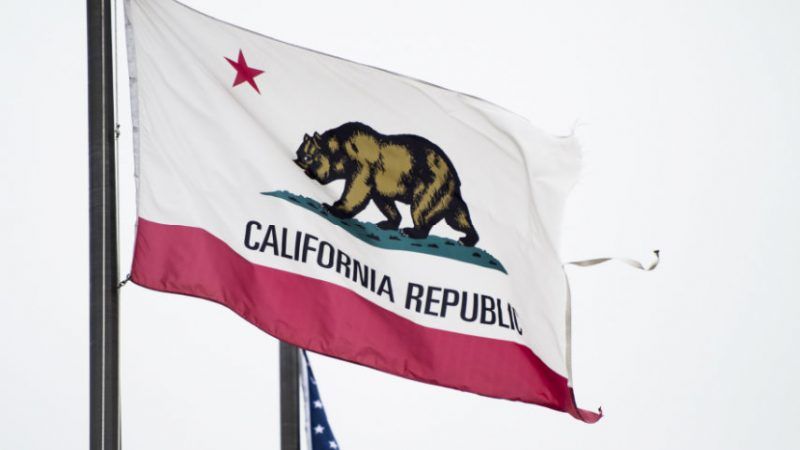California's Insurance Commissioner Race: The Most Important Election You've Never Heard About
The winner gets to decide how much Californians will pay for property and casualty insurance.

Some of the most heated races in the November election are for offices that most Californians know little about. Ask an average voter about the Orwellian-sounding Bureau of Equalization (BOE), and they'll look at you with an eyes-glazed-over stare reminiscent of a cat's gaze after you ask whether it prefers tuna or turkey giblets. Likewise, how many voters can tell you why the race for insurance commissioner is so important?
The BOE races don't really matter. The tax board used to be fairly important, but the Legislature recently stripped it of most of its powers. Those elections mainly are about who gets a sinecure while they contemplate other offices. But the election of insurance "czar," as some rightly call it given the vast powers held by the head honcho at the Department of Insurance, holds real significance given its impact on insurance markets and the cost of your premiums.
The choice of commissioner is fascinating. Both candidates are highly accomplished, which offers a clue that this is not a placeholder job. They have different philosophies and personalities. Democrat Ricardo Lara of Bell Gardens is one of the Senate's most liberal members—an advocate for single-payer health insurance and one of the more entertaining personalities in the Capitol. Steve Poizner has a low-key demeanor. He was a Bay Area tech entrepreneur and was a moderate Republican insurance commissioner from 2007-2011. He is running this year with "No Party Preference."
The horse-race aspect is getting the most attention. Most polls show Poizner with a decent lead, although there's a sizable chunk of undecideds given the lack of overall attention paid to this office. If Poizner wins, he will be the first non-party-affiliated candidate elected to statewide office in California's history. "I really, really want to stay out of partisanship," he told CALmatters. "If I can win, that will open the door to lots of other people who will run for office."
Supporters of the top-two primary system see his possible success as a vindication of their reform, which elevates the top two vote-getters, regardless of party, to the general election. Their goal is to break the party stranglehold. That makes for a headline-grabbing political-reform story, but my interest centers on the importance of the office itself. Bottom line: California regulates insurance in such a ham-fisted way that it makes it tough for insurers to offer creative new products that meet market needs and to offer the most-competitive pricing to consumers.
The regulatory heavy approach, whereby the commissioner has to approve all proposed rate changes, sometimes leads insurance commissioners into highly political forays. For instance, outgoing commissioner Dave Jones used his power to try to prod insurance companies to divest from investments in coal-based energy, which was a vast stretch of the department's power to meddle in private investments. Jones also was viewed by critics as being too close to trial attorneys, who receive fees from the rate-approval ("intervenor") system.
This convoluted system goes back to 1988, when voters approved Proposition 103. As the Department of Insurance explains, the initiative capped rates and "requires the 'prior approval' of California's Department of Insurance before insurance companies can implement property and casualty insurance rates. Prior to Proposition 103, automobile, property and casualty insurance rates were set by insurance companies without approval by the insurance commissioner."
In our market economy, companies offer products at different prices and the buyer chooses. Prices are kept in line thanks to competition. There's a legitimate role for regulation, mainly to make sure the businesses live up to their promises. That traditionally is the main role of state insurance commissions. They need to assure that insurance companies have the financial resources to pay out the coverages in the event of disaster. But voters instead implemented a government-controlled rate system.
Suffice it to say, there are myriad and vital insurance issues hobbled by the voter-imposed model. For instance, the commission needs to modernize its regulatory approach so that companies can offer new lines of insurance that help businesses thrive. They need to allow a more competitive market, which is what ultimately keeps prices low and coverages high. They need to deal with our earthquake-insurance mess and wrestle with issues related to wildfires.
The candidates' ballot statements offer insight into their approaches. Poizner points to the "urgent issues" in the state's insurance markets. He strikes an activist pose, by discussing efforts he took in his past term to protect the public from being "shortchanged" by insurers. Lara's statement explains his approach with simplicity: The job "is really about two things—making sure that insurance is priced fairly and that if we ever need to use it, our claim will be handled fairly."
I have no voting advice to offer here, but would urge Californians to spend some time thinking about this rarely-thought-about race and department. Surprisingly, it's one of the more important races that you'll decide in November.
This column was first published by the Orange County Register.
Steven Greenhut is Western region director for the R Street Institute. He was a Register editorial writer from 1998-2009. Write to him at sgreenhut@rstreet.org.


Show Comments (8)